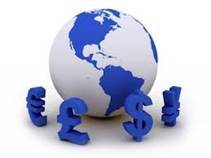Foreign Income Verification Form (Form T1135)
Allan Madan, CPA, CA

To make sure your foreign income verification process goes smoothly, the foreign property that must be recorded on the T1135 includes:
- Funds in foreign bank accunts
- Shares in foreign companies, even if held in a Canadian brokerage
- Interests in non-resident trusts
- bonds or debentures issued by foreign government or foreign countries
- Life insurance policies issued by a foreign issuer
- Real estate situated outside Canada
- Other income earning foreign property
Properties that are not included are:
– TFSA’s – Any property used mainly for personal use and enjoyment (i.e. vehicle, vacation property, jewellery, artwork, or any other such property) – Assets used only in an active business, such as a business inventory or the equipment and building used in a business
Another important property to not include is Canadian companies traded on foreign stock exchanges. This seems to be the most overlooked and should not be considered foreign property even though it may be quantified in foreign currency. If this property is jointly owned, each person would determine if the $100,000 has been exceeded based off the portion of the cost. Make sure to keep track of purchases made in all currencies and to convert them into Canadian dollars to see if at any given point the total exceed the $100,000 threshold.
Penalties and Disclosure
The penalty for not filing the T1135 while having over $100,000 CAD in foreign property is $25 a day up to a maximum of $2,500 per year if you had to file the form. There are additional penalties for failure to file and for false statement and omissions that could accrue $500 and $1000 penalties respectively.
If you have not submitted the T1135 when you should have, it would be best to do this through the CRA’s Voluntary Disclosure Program to avoid the severe penalties mentioned above.
Since 2014, it is recommended that filers use the new T1135 form to mail to the Ottawa Technology Centre whose address can be found on the form. Those filing for the 2014 taxation year after July 31st, 2014 must use the new form. For previous years, it is not necessary, but you can still use the new form for the 2013 filing which also had an extended due date to July 31, 2014.
On previous versions of the form, filers did not have to identify particular foreign assets or to have a precise cost basis. The information currently needed to file this form includes:
- name of the entity holding the properties
- name of the foreign corporation, name of the foreign trust or description of the foreign property
- country where property is located during the year
- cost of the property at year end
- amount of income or loss related to the property
- amount of any capital gain or loss realized on the disposition
The revision to the form allows greater flexibility if receiving a T3 or a T5 with the corresponding properties involved. This means that if the information is included in a T3 or T5, then no additional disclosure is required for these assets. However, this property would still be included in the $100,000 requirement for needing to file the T1135. this only meant as a means to make things easier for taxpayers in that they don’t need to disclose income from a property held with a Canadian broker.
For the 2013 tax year, the CRA is using what is called a transitional relief process. This allows a taxpayer who holds a foreign property in an account with a Canadian broker to report the combined aggregate cost of all property rather than listing the individual properties within a Canadian broker.
The T3 or T5 disclosure exemption must be used independently from the 2013 transitional relief. Because of the filing extension for previous years, it is important to keep track of foreign holdings and report them to the CRA.
If you have significant income from foreign property and plan on becoming a non-resident of Canada, it is essential that you have a look at this article on tax implications of becoming a non-resident of Canada.
Disclaimer
The information provided on this page is intended to provide general information. The information does not take into account your personal situation and is not intended to be used without consultation from accounting and financial professionals. Allan Madan and Madan Chartered Accountant will not be held liable for any problems that arise from the usage of the information provided on this page.



